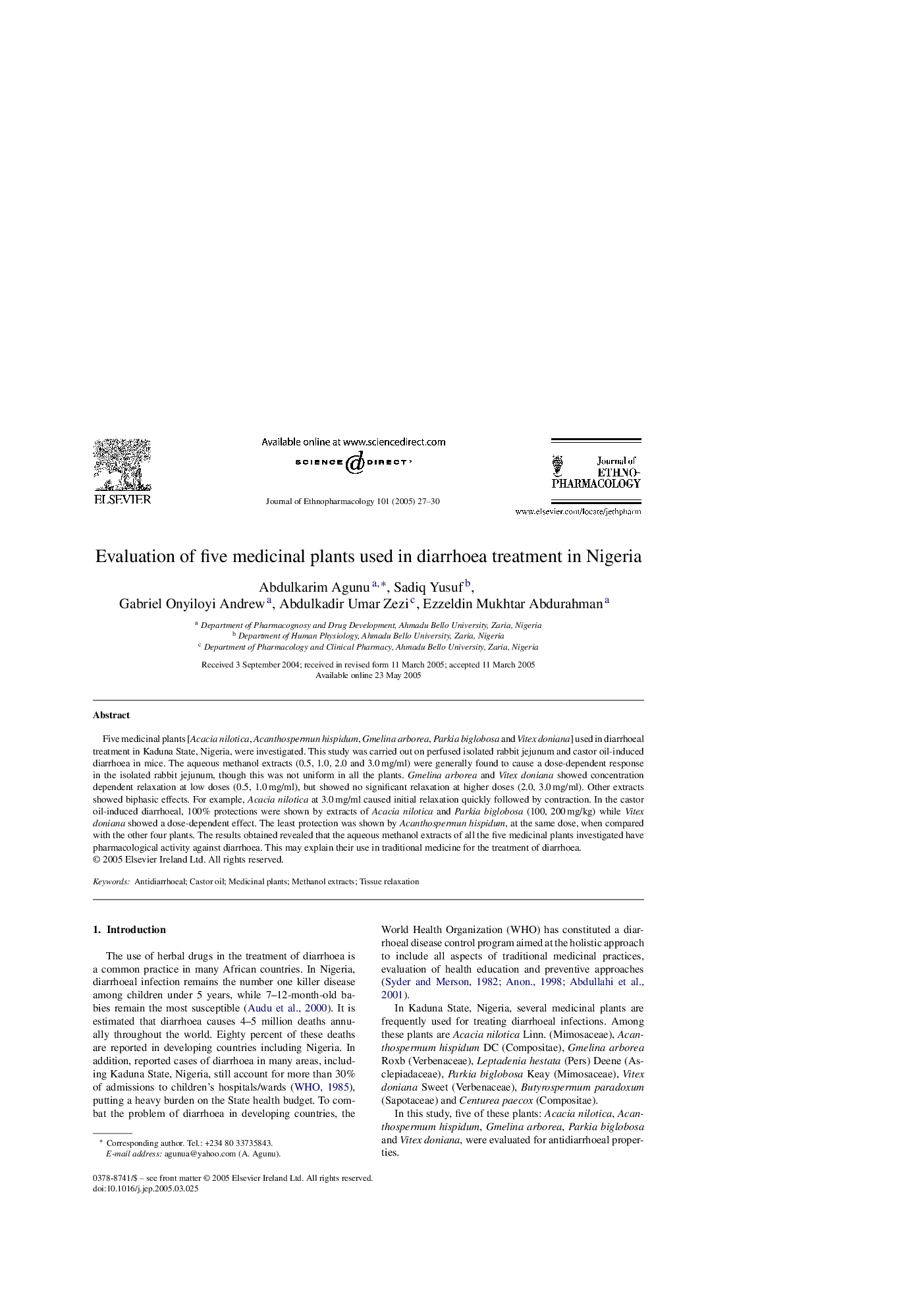| Article ID | Journal | Published Year | Pages | File Type |
|---|---|---|---|---|
| 9011148 | Journal of Ethnopharmacology | 2005 | 4 Pages |
Abstract
Five medicinal plants [Acacia nilotica, Acanthospermun hispidum, Gmelina arborea, Parkia biglobosa and Vitex doniana] used in diarrhoeal treatment in Kaduna State, Nigeria, were investigated. This study was carried out on perfused isolated rabbit jejunum and castor oil-induced diarrhoea in mice. The aqueous methanol extracts (0.5, 1.0, 2.0 and 3.0Â mg/ml) were generally found to cause a dose-dependent response in the isolated rabbit jejunum, though this was not uniform in all the plants. Gmelina arborea and Vitex doniana showed concentration dependent relaxation at low doses (0.5, 1.0Â mg/ml), but showed no significant relaxation at higher doses (2.0, 3.0Â mg/ml). Other extracts showed biphasic effects. For example, Acacia nilotica at 3.0Â mg/ml caused initial relaxation quickly followed by contraction. In the castor oil-induced diarrhoeal, 100% protections were shown by extracts of Acacia nilotica and Parkia biglobosa (100, 200Â mg/kg) while Vitex doniana showed a dose-dependent effect. The least protection was shown by Acanthospermun hispidum, at the same dose, when compared with the other four plants. The results obtained revealed that the aqueous methanol extracts of all the five medicinal plants investigated have pharmacological activity against diarrhoea. This may explain their use in traditional medicine for the treatment of diarrhoea.
Related Topics
Health Sciences
Pharmacology, Toxicology and Pharmaceutical Science
Pharmacology
Authors
Abdulkarim Agunu, Sadiq Yusuf, Gabriel Onyiloyi Andrew, Abdulkadir Umar Zezi, Ezzeldin Mukhtar Abdurahman,
